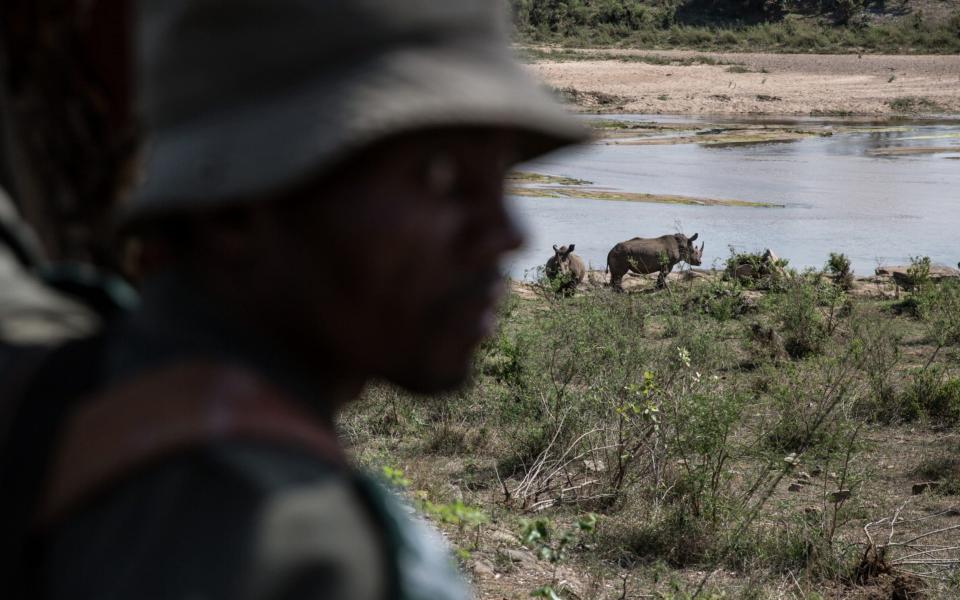Rhino at risk of extinction as Kruger National Park reports steep decline

The rhino is at risk of extinction, conservationists have warned after new data showed that its numbers in Kruger National Park had plummeted.
An official count in the park, home to the world's biggest concentration of rhinos, found it had lost two thirds of its animals in less than 10 years.
There are 3,549 white rhinos and 268 rarer black rhinos in the park in northeastern South Africa. In 2011 the white rhino population was estimated to be 10,621 and the black rhino 415. The decline has been most rapid since 2015 when there were estimated to be close to 9,000 white rhinos in the park.
Conservationists urged international governments to put pressure on South Africa to act urgently to halt the decline.
It had been hoped that a decrease in rhino poaching would have revived the species. But the latest figures, published in the South African National Parks annual report for 2019/2020, suggests that there is less poaching only because of a scarcity of rhino in Kruger.
The rhino has become emblematic in the fight to preserve rare species across the world and its loss would be a devastating blow to conservation groups.

Patsy Stagman, founder of Rhino Revolution UK, a campaign group, said that the decline threatened the species. Most white rhinos in the wild are found in South Africa. "These figures are quite shocking," Ms Stagman said. "We now need international pressure put upon South Africa. There is less poaching only because there is less rhino. This is the worst it has ever been. Rhino will become extinct at this rate."
Kevin Pietersen, the former England cricket captain and founder of Sorai, a rhino conservation charity, called on the Prime Minister to intervene. He tweeted: "Absolute disaster. I understand Boris Johnson has a lot on but this ... needs urgent action."
Charlie Mayhew, chief executive of Tusk, a wildlife charity, said: "We've always known that Kruger National Park is a prime target for illegal poaching, but these figures are more worrying than ever."
It is not clear when South African National Parks, which manages the country's parks, tallied its rhinos, which is done every two years. Ms Stagman said she believed that the audit could be 18 months out of date.
The report will lead to accusations that the agency is trying to gloss over the losses. It states that although numbers have fallen, for the first time rhino births have matched deaths by poaching or naturally. "This bodes well for future population growth," it says, a claim that has been ridiculed. Anti-poaching initiatives have "reduced poaching rates" to 7.5 per cent of the rhino population each year since 2016.
In the same report, the agency admitted that the decline had prompted Kruger to "revise its rhino strategy one year earlier than planned".
Rhinos are killed by poachers for their horns, which can sell for £50,000 a kilogram in Asia. The horn of the larger white rhino can weigh 4kg.
Kruger, which covers 7,523 square miles, is difficult to defend against poaching because its long border with Mozambique makes it hard to prevent incursions. The southern part of the park, closest to Johannesburg, is more frequently visited by tourists and rhino numbers are strongest there. Some conservationists now fear that numbers in the more remote northern areas may be close to zero.
Read more: ‘I’ve seen a rhino shed tears’ – Kenya's animals through the eyes of its rangers

